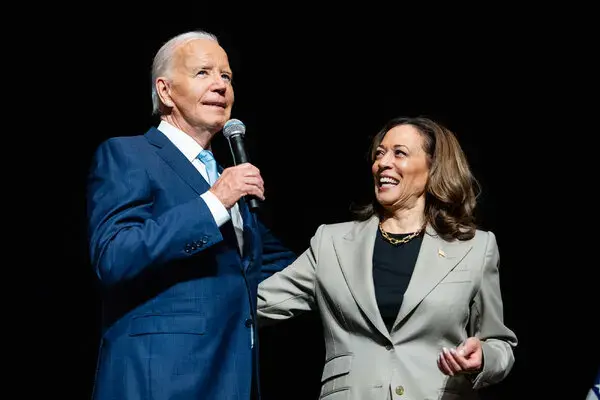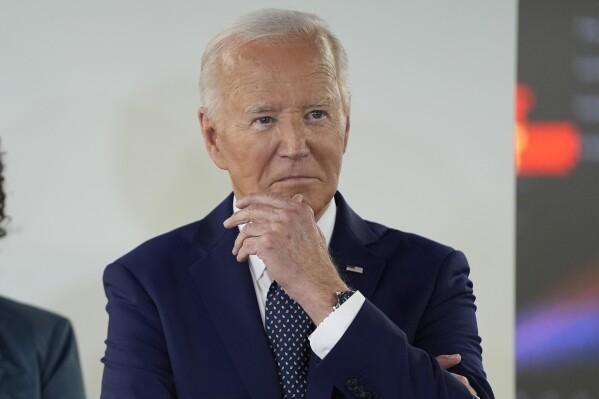On May 8, 2025, President Joe Biden Responsibility for the Democratic Party’s electoral defeat in November 2024, asserting that Vice President Kamala Harris’s loss to Donald Trump was not surprising given the barrage of sexist and racist attacks she faced. Speaking on ABC’s The View, Biden expressed disappointment but not shock at the outcome, pointing to the Trump campaign’s relentless and divisive tactics. His candid remarks, delivered to a sympathetic audience, shed light on the challenges Harris faced and the broader dynamics that shaped the election.

Trump’s Campaign: A Playbook of Division
Biden highlighted the Trump campaign’s strategy, which leaned heavily on personal attacks against Harris, the first Black and Asian American woman to serve as vice president. “I wasn’t surprised because they went the sexist route,” Biden said, noting that Trump’s team weaponized misogyny and racism to undermine her candidacy. He described the attacks as “consistent” and “successful” in eroding public perception, referencing derogatory nicknames like “Laffin’ Kamala” and false claims about her heritage. These tactics, Biden argued, tapped into deep-seated biases, making it harder for Harris to connect with voters. Data from a 2024 Pew Research Center survey supports this, showing that 54% of Americans viewed Harris’s gender as a significant obstacle to her campaign, while 48% cited her race. The Trump campaign’s focus on inflammatory rhetoric—such as calling Harris a “DEI hire” or questioning her Black identity—amplified these challenges, resonating with certain voter groups.
Harris’s Campaign: Loyalty and Constraints
 Biden also reflected on Harris’s campaign strategy, suggesting her loyalty to his administration limited her ability to carve out a distinct identity. Campaign insiders noted that Harris avoided distancing herself from Biden’s record, fearing it would alienate key Democratic voters. “She wasn’t willing to break with the president,” said senior adviser Stephanie Cutter, citing the risk of creating “a different set of problems.” Yet, this decision tethered her to Biden’s low approval ratings, which hovered in the low 40s throughout his term, according to Gallup polls. Harris’s pivot to a “joyful” message of personal freedoms and economic opportunity failed to fully counter voter frustration with inflation and immigration, issues where Trump polled strongly. A post-election analysis by Democratic strategist Adam Jentleson criticized the party for prioritizing “coalition management” over appealing to working-class voters, a misstep that cost Harris in battleground states like Pennsylvania and Wisconsin.
Biden also reflected on Harris’s campaign strategy, suggesting her loyalty to his administration limited her ability to carve out a distinct identity. Campaign insiders noted that Harris avoided distancing herself from Biden’s record, fearing it would alienate key Democratic voters. “She wasn’t willing to break with the president,” said senior adviser Stephanie Cutter, citing the risk of creating “a different set of problems.” Yet, this decision tethered her to Biden’s low approval ratings, which hovered in the low 40s throughout his term, according to Gallup polls. Harris’s pivot to a “joyful” message of personal freedoms and economic opportunity failed to fully counter voter frustration with inflation and immigration, issues where Trump polled strongly. A post-election analysis by Democratic strategist Adam Jentleson criticized the party for prioritizing “coalition management” over appealing to working-class voters, a misstep that cost Harris in battleground states like Pennsylvania and Wisconsin.
Biden’s appearance on The View underscored his belief that Harris was uniquely targeted, yet the loss reflected broader Democratic failures to address voter discontent. While he stopped short of claiming he would have won, his comments hinted at lingering tensions within the party. For Americans grappling with the election’s aftermath, Biden’s remarks offer a sobering perspective on how divisive rhetoric and strategic missteps shaped a historic defeat.






